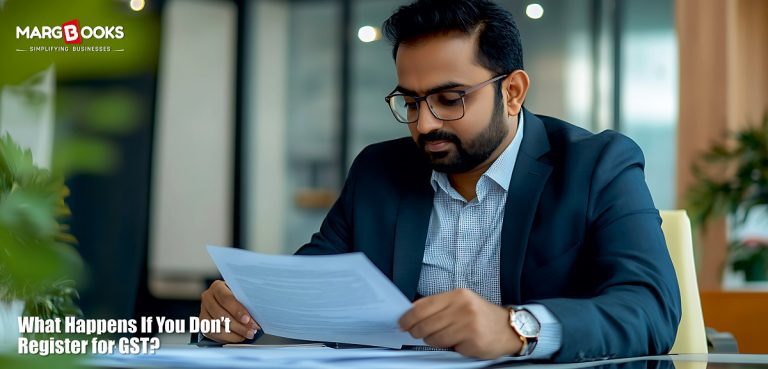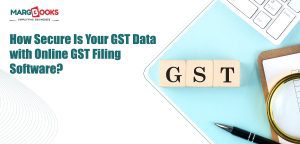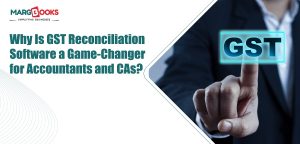With the introduction of the Goods and Services Tax (GST) regime in India, businesses, big or small, have had to relook at their compliance strategies. But what happens if you don’t register for GST? Is it optional, or could it come back to bite you in the long run?
In this blog, we will explore the risks, penalties, and business consequences of not registering for GST, and how tools such as GST billing software and inventory management software can help you stay compliant. If you’re a small business owner or freelancer wondering whether it’s time to register for GST, read on.
Why Register for GST?
Before we get into the consequences, let’s quickly understand why it’s important to register for GST in the first place.
Under Indian law, any business whose aggregate turnover exceeds ₹40 lakhs (₹20 lakhs for service providers in some states) in a financial year is required to register under GST. For certain sectors, such as e-commerce, interstate suppliers, and export businesses, registration is mandatory regardless of the business’s turnover.
By registering for GST, you:
- Become legally compliant
- Can avail of Input Tax Credit (ITC)
- Can issue legal tax invoices
- Build business credibility
- Expand into e-commerce and B2B markets easily
What Happens If You Don’t Register for GST?
Now, here’s the real concern. Many small businesses and freelancers often think they can fly under the radar. But non-registration comes with serious consequences, both financial and legal.
Let’s break down what could happen:
1. Heavy Penalties and Fines
If you are liable to register for GST but fail to do so, you are considered in violation of GST law. As per the GST Act:
- A penalty of ₹10,000 or 10% of the tax due, whichever is higher, is applicable.
- If tax evasion is found to be intentional, the penalty can go up to 100% of the tax due.
- In extreme cases, prosecution and arrest may also be considered.
This can prove quite costly for a small business that’s already struggling to manage tight budgets.
2. Loss of Input Tax Credit
Without GST registration, you cannot claim Input Tax Credit (ITC). This means, for every input you purchase (raw material, packaging, or other services), you’re paying GST, but you can’t claim it back. That adds to your cost unnecessarily.
It also discourages other GST-registered businesses from dealing with you, since they lose ITC on such transactions.
3. Restricted Market Access
Without a GST number, you’ll face roadblocks when:
- Selling through online platforms including Amazon or Flipkart
- Providing services across state borders
- Working with large enterprises that only deal with GST-compliant vendors
So, your market stays limited, making growth a challenge.
4. No Legal Invoice Generation
A business that’s not registered under GST cannot issue a legal GST invoice. This again creates problems when dealing with corporations or B2B clients who require proper documentation for IT purposes.
Over time, this lack of proper invoicing can affect your professional image and reduce trust.
5. Surprise Audits and Notices
GST departments are increasingly using data analytics and AI to track suspicious transactions. If you show up in a GST-registered buyer’s filing but don’t have a registration yourself, you may receive a notice from the department.
Repeated non-compliance can lead to audits, business scrutiny, and even freezing of your bank accounts.
How GST Billing Software Can Help?
Understandably, compliance feels overwhelming, especially for small businesses. That’s where using GST billing software becomes a game-changer.
A good GST software helps you:
- Generate GST-compliant invoices
- Auto-calculate tax liabilities
- File monthly/quarterly GST returns
- Maintain customer and vendor databases
- Get real-time alerts for due dates
One popular solution among Indian SMEs is Marg Books, a cloud-based billing and accounting software that makes GST compliance easy even for non-accountants.
With Marg Books, you can:
Create GST bills in seconds
Integrate with e-way bill systems
Auto-reconcile returns
Handle both sales and purchases with ease
The Role of Inventory Management Software
GST isn’t just about billing, it’s closely tied to your stock. That’s why many smart businesses are now using inventory management software along with GST solutions.
Features such as:
- Real-time stock tracking
- Automated reorder alerts
- Batch-wise and expiry tracking
- Purchase and sale sync
not only keep your business organised but also help in accurate GST return filing.
Marg Books offers built-in inventory management software features, which means you don’t have to invest in two different tools. Everything works in sync: billing, stock, accounting, and tax compliance.
Final Thoughts
Not registering for GST may feel like a shortcut, but in reality, it’s a trap that could derail your business. From hefty penalties to loss of clients and credibility, the risks far outweigh any short-term gains.
The good news is that with tools, MargBooks, staying compliant doesn’t have to be complicated or expensive. Whether you’re just starting or already running a growing enterprise, it’s smart to register for GST and build your business on a strong legal foundation.
Don’t wait for a government notice to remind you. Be proactive, register today, and manage your GST journey with ease.




